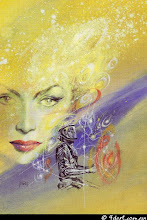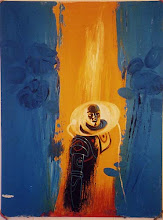
The Strugatsky's masterwork and one of my favorite books of all time. This, my 2nd read, was just as amazing, if not more so, than the first. Similarly, I re-read Stanislaw Lem's outstanding essay
About the Strugatsky Brother's Roadside Picnic upon completion. Very insightful. I am anxious to start Tale of the Troika.

This early MacDonald mystery pre-dates his Lew Archer mysteries, and since I enjoyed all of those so much, I am endeavoring to read all his non-Archer work. So far I have now read all but two of these and I must say they all fall quite short of the standard he set in the Archer novels. Oh well, two more to go.

Hill's second novel
Horns starts off quite well. The first 70 pages or so really got me excited about the main character's transformation. Hill then splits the rest of the novel between back story and the plot thread he wove from the beginning. I like Hill. I liked his first novel,
Heart-Shaped Box, I read the hardcover graphic novels for his series
Locke & Key, and I
really liked his collection of short fiction
20th Century Ghosts. Unfortunately, the remainder of Horns couldn't keep up with the interest he generated in the 1st 70 pages or so. I wasn't bad, it just went downhill after a spectacular start. I'll continue to read Joe's fiction.

What can you say but GENIUS!

I love 19th century fiction and I love the novels of Alexandre Dumas. I have long lamented the dearth of his writings that were available in easily accessible, quality translations. Well over the last few years we have seen a few nice additions to Dumas' available canon. I read the
Knight of Maison Rouge a couple years ago and was thrilled to see Modern Library also release
Georges, the release of the previously lost
The Last Cavalier, and Penguin's release and new translation of Dumas'
The Women's War. There is not much to say. If you are a fan, you will love it. It has all the hallmarks of classic Dumas. Swashbuckling, double-crosses, romance, clever interplay of the characters, and, of course, all loosely based around actual events from French history.

Each and every time I read a new book by brothers Arkady and Boris Strugatsky I marvel at how easily they are able to put the reader into a completely foriegn environment. Definitely Maybe is a stellar allegorical tale, deftly and economically told, about the suppression of the individual in Soviet society. Simply remarkable. If you are a fan of challenging, thought-provoking fiction, you need to check out the Strugatsky's.
 I've seen loads of Blaxploitation movies. It is one of my favorite film genres, and by and large they are entertaining films. What I find even more entertaining than the films themselves are their soundtracks. These movies have some of the funkiest and grooviest tunes ever laid down for film. In many cases the soundtracks are the only redeeming element the film has to offer.
I've seen loads of Blaxploitation movies. It is one of my favorite film genres, and by and large they are entertaining films. What I find even more entertaining than the films themselves are their soundtracks. These movies have some of the funkiest and grooviest tunes ever laid down for film. In many cases the soundtracks are the only redeeming element the film has to offer. 





















































